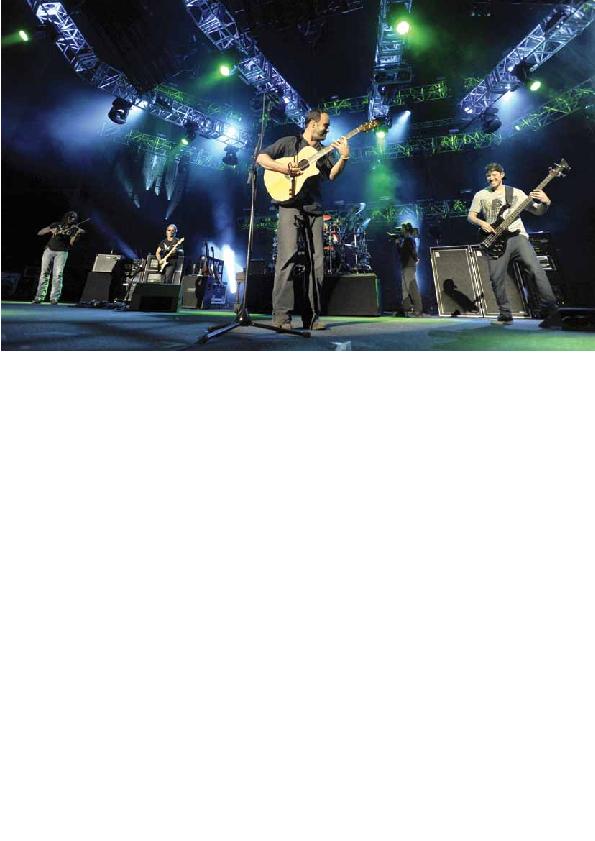
local watering hole and a hub for the town's
vibrant live music scene.
a hiding to nothing. In truth, were it not for
the encouragement of musician and friend
Ross Hoffman, he might never have plucked
up the courage to make a demo tape. It was
1991 and history was about to be made.
Born...
aimed high and approached the local
musicians he most admired: drummer Carter
Beauford; saxophonist LeRoi Moore; bassist
Stefan Lessard, who was just 16 years old at
the time; keyboardist Peter Griesar, who left
the band in 1993; and violinist Boyd Tinsley.
clear that this would be more than a one-off
collaboration they were a band and a great
one at that. In 1991, they produced their
first in-studio demo, recording the songs "I'll
Back You Up," "The Song That Jane Likes,"
"Recently" and "Best of What's Around."
band became known as the Dave Matthews
Band and the name stuck. If that gives the
impression that Matthews is bandleader or
has a greater stake in the band, then scratch
that notion. DMB is and always has been a
democracy.
made the deliberate decision to grow the
band from the ground up, developing a strong
fan base before pursuing a record deal. So
DMB embarked on a grueling three-year tour,
playing 200 nights a year at colleges, frat
houses, beach parties and the like.
no such restrictions. Bootlegged tapes of
DMB shows spread across the country like
wildfire, as did the band's fame. In 1993, the
band released its first album, "Remember
Two Things" a live recording made at Muse
Music Club on Nantucket Island in August
1993. The album debuted as the highest
independent entry on the College charts and
would eventually be certified Platinum.
and Dreaming" went to Number 11 on the
Billboard 200 chart and is now certified six
times Platinum. This was followed two years
later by the album "Crash" which debuted
at Number Two and when "Before These
Crowded Streets" was released two years
after that it went straight to Number One,
and it wouldn't be the last album to do so.
albums, eight video albums, two extended
plays, 29 singles and 21 music videos. In
1997, the band won a Grammy Award for
the Best Rock Performance by a Duo or
Group With Vocal for the song "So Much
to Say" from their third album, "Crash." In
2003, Dave Matthews won the Grammy for
Best Male Rock Vocal Performance, for the
song "Gravedigger."
few public disagreements between its
members. It survived the tragic loss of
founding and beloved band member, LeRoi
Moore in 2008, as the result of an ATV
accident. Following Moore's death, Jeff
Coffin of Béla Fleck and the Flecktones
joined the band as its new saxophonist. The
band now also includes trumpeter Rashawn
Ross and legendary guitarist Tim Reynolds.
performing in Cape Town on 30 November
and 1 December 2013 at the Grand Arena,
GrandWest and in Johannesburg on 3
December 2013 at the Coca-Cola dome.